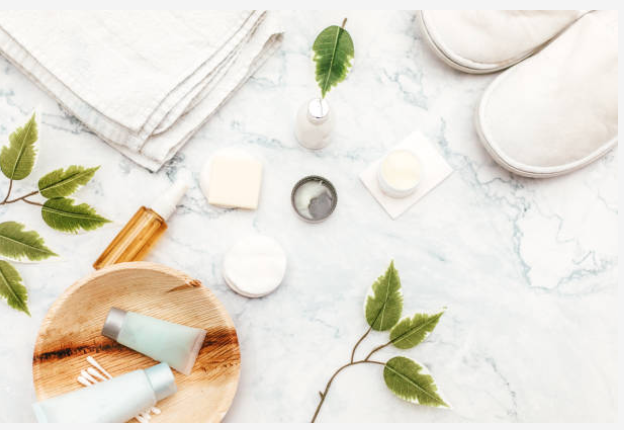Introduction Robert J Thieruf in his book “Virtual Reality Systems for Business” explains Virtual reality…
Analysing the Relevance of Patents in the Cosmetic Industry
The cosmetic industry consists of personal care products such as skin care, makeup and bath that are used to maintain the human body. In 2019, the global cosmetics industry was valued at $380.2 Billion. The industry is expected to reach $463.5 Billion by 2027 with a compound annual growth rate of 5.3 per cent, making it one of the most lucrative industries in the world. In India, as of 2017, the market size of the cosmetic industry was valued at 11 billion U.S dollars and is expected to reach a value of 20 billion U.S dollars by 2025. Every year, several cosmetic conglomerates introduce a variety of products that are extensively marketed. Cosmetic brands strive to introduce products backed by scientific claims, which also significantly increases their marketability. Cosmetic conglomerates spend a considerable amount of money for research, development and formulation of such products. This has fuelled the genesis of cosmetic patents that are aimed to protect the formulation, research and development of beauty products. One of the first cosmetic patents can be traced back to 1888, which was awarded for a deodorant. Following this, in 1865, the first liquid soap was patented. Patenting is vital in the cosmetic industry since this may prevent other commercial entities and individuals from creating counterfeit or adulterated cosmetic products which are sold at cheaper rates. With regard to this, section 48 of the Indian Patents Act states as follows:
Subject to the other provisions contained in this Act and the conditions specified in section 47, a patent granted under this Act shall confer upon the patentee—
(a) where the subject matter of the patent is a product, the exclusive right to prevent third parties, who do not have his consent, from the act of making, using, offering for sale, selling or importing for those purposes that product in India:
(b) where the subject matter of the patent is a process the exclusive right to prevent third parties, who do not have his consent, from the act of using that process, and from the act of using, offering for sale, selling or importing for those purposes the product obtained directly by that process in India
This section implies that the patent owner may restrict other third parties from using the cosmetic product’s formulation or making a similar product and capitalizing out of it. Furthermore, the Drugs and Cosmetics Act also prevents the creation of ‘adulterated’ drugs. Nevertheless, the laws concerning cosmetic patents is rather inchoate in India.
The USPTO has dedicated a separate class for the patenting of cosmetics. Several requirements must be fulfilled to patent a cosmetic product. For one, the cosmetic product must consist of a patentable subject matter. The cosmetic product must consist of a formulation or mixture of ingredients that qualify as a patentable subject matter. Secondly, the cosmetic product must be novel. This essentially means that the cosmetic invention should consist of components that differentiate it from pre-existing products in the market. Additionally, the formulation and technicalities pertaining to the cosmetic product should not be publicly disclosed. The ingredient list and the processes involved in manufacturing that cosmetic product should be non-obvious to those skilled in the art. Thirdly, the cosmetic product should have some industrial application. This essentially means that the invention should be useful to the general public. In the patent application, it is imperative to describe the usefulness of the cosmetic product. Apart from cosmetic products such as creams, bathing bars or makeup items, the packaging of several cosmetic products are also patentable. For this, a design patent may be obtained if the product’s packaging is unique and serves some purpose. One of the first packaging patents awarded was for a metal lipstick tube. William Kendall was accredited as the inventor for coming up with this lipstick holder. The patent was filed in January 1917. Later on, in 1939, Frank L Engel Jr. was awarded a patent for a mascara container.
The applicability of patent laws is slightly different when an organic cosmetic product is patented. Typically, a naturally occurring product in its natural state cannot be patented. This is because a cosmetic product that is herbal is not an invention. However, this does not mean that herbal cosmetic products cannot be patented. A patent can be granted for the use of the herbal product and the novel formulation of the herbal cosmetic. For instance, in 1988, L’Oréal had filed a patent to protect the genus chrysanthemum extract. The patent office granted the patent since the application specified that L’Oréal was attempting the patent the use of the extract. The use included applying the extract on a person’s skin to fight pigmentation. Thus, the patent was granted. The cosmetic industry is undoubtedly one of the most profitable industries in the world. However, it is plagued with several issues, such as counterfeiting and adulteration. The development of patent laws to regulate the manufacturing of cosmetic products could greatly help in combatting such issues in the near future.
Author: Sanjana, a BBA LLB student of Symbiosis Law School (Hyderabad), currently an intern at IIPRD. In case of any queries please contact/write back to us at [email protected].

 [Image Source: gettyimages]
[Image Source: gettyimages]

